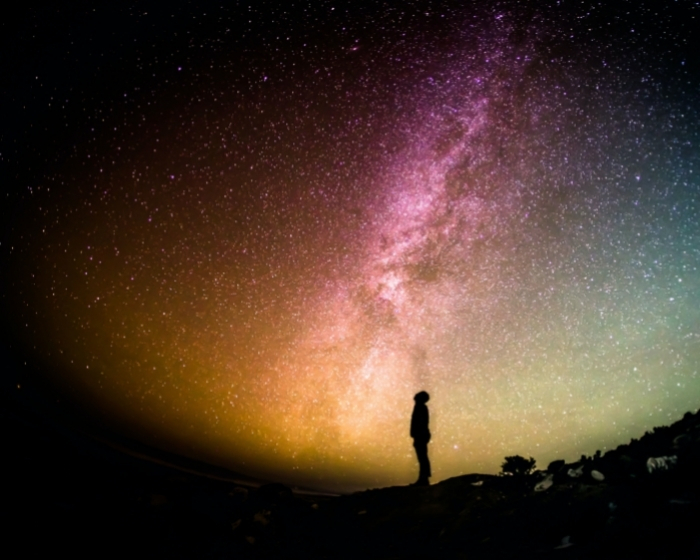The youngsters I teach human biology to at the University of WA, who are around 17, generally think the only way of knowing is through science – ‘Give me the facts and I will understand the world’.
I love science, but there is another way of knowing, what Rob Bell called mythos, about what lies beneath the facts, that lies in our experiences and our awareness at a very deep level, sometimes beyond the everyday. We would say this is where God is to be found.
We would also say that we can sense this divine presence in philosophy, art, music, nature, literature and in our scriptures – and also in our own ordinary lives, with all its joys and sorrows, if we are listening. The footprint of God if you like. My journey has involved being fairly anti-religion at one point. When I studied anatomy, then taught it, I was involved in preparing specimens for teaching, so had to dissect dead bodies or cadavers. My thinking started to change a lot, and I started to expand my views of what a human life really was.
When you see a whole cadaver or dead body in a lab, it can be quite confronting. I remember how I was especially touched by an older woman’s body, just lying there on the table in one of my sessions. I pondered, was she someone who had a family who loved her, maybe had children, probably like us had her likes and dislikes, maybe she did something really incredible for a job, or maybe she was a cleaner, or stayed home and looked after her kids.
Was she someone who spoke up for others, or believed in God? How did she die, was it quite quick, or a long, drawn-out illness? And why did she feel that donating her body to the anatomy department was a good idea? What is it to be alive, to be in the world?
I know that the inner spark, the life force that makes us who we are was gone from this person. Whatever made that woman alive, had been snuffed out. Whatever made her ‘her’ was gone.
So yes, we are blood and tissue, joints and muscles, organs and skin, but we are also thoughts, feelings, hopes, dreams, joys and sorrows – a subjective life that seems to stem not just from the physical world, but from some culmination of all that we are. That which gives our life meaning and purpose, colour and framework.
My anatomical career, both as a student and as a teacher, led me to explore the nature of life and the age-old question of God – or at least the idea there was something else going on there that couldn’t be seen or measured. To examine the “fullness of human experience,” as Paul Kahini writes.
But what did I do with it in my 20s, when this widening of my reality happened? After a while, I fell upon Wembley Downs Uniting Church, not by accident, but because I worked at Royal Perth Hospital with a physicist who went there.
It was an open, active, exploring community, who was also warm and accepting. So I stayed… and stayed! Modern physics, focussing on quantum mechanics and cosmology, philosophy and evolutionary biology is taking us to a different more expanded place. We are finding that we are a marvel of creation and there are mysteries going on that are deeper than we can understand.
As science moves beyond materialism, where only things that can be measured are valued, Rupert Sheldrake would suggest we are recovering a sense of the life inherent in nature as a whole and in self organising systems at all levels of complexity. And producing new ways of connecting to our Christian roots and to the God factor.
So maybe the sense of awe we feel at the created order, or the beautiful music we listen to, the sense of peace we experience at times when we are silent, the sense of connectedness to all things that rises up and greets us when we are working alongside others, loving others, the knowing we get at odd times, that there is something more, something extra within and between us, doesn’t seem so radical anymore.
This is the hint of God’s presence, surprising us in our ordinary, everyday lives. For we sometimes forget this reality when the world goes crazy, that God is in all things, and all things are in God. A presence Jesus calls us to embrace.
But sometimes it’s easier said than done. I don’t want to leave you thinking I don’t have doubts, or that sometimes the divine presence seems a long way away. I can slip back into science/measurement mode and forget about the mystery. Yet it’s okay to search, to explore, to question. As Frederick Buechner says, “That means you are human.”
Or as Kari Jo Verhulst suggests, “This is what it is to be alive!”
It’s the greatest of privileges to explore the meaning of God and we come from a long line of searchers. Science helps us to widen our view and open our eyes to the incredible life around us, including the universal God presence we believe in and respond to. I think so anyway.
Karen Sloan
